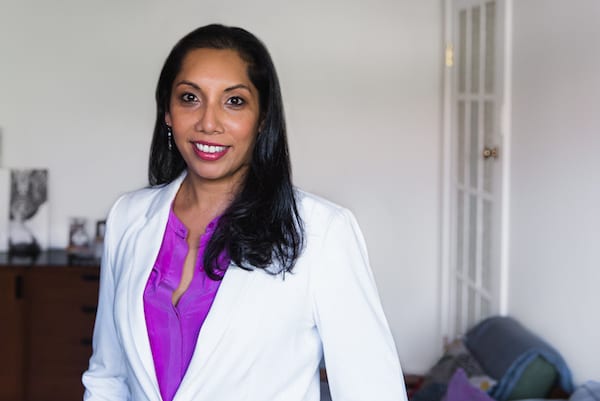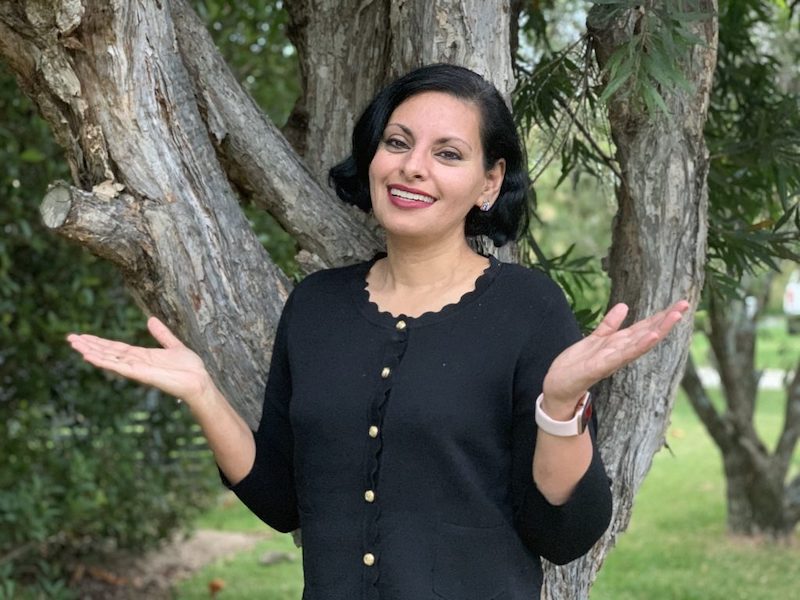If a true entrepreneur is somebody who solves real world problems through business, then Dr Talat Uppal is absolutely it.
You won’t find her in the traditional places entrepreneurs are celebrated. You won’t see her on an AFR Rich List. Or as an influencer on Instagram.
Where you will find her is at Women’s Health Road, a new kind of women’s health practice that she’s established on Sydney’s Northern Beaches aiming to bring multiple, commonplace women’s health needs into the one space that puts the needs of the patient above anything else. That means you can access obstetrics and gynecology care from Dr Uppal herself, before going next door to see a midwife, a breastfeeding consultant, a perinatal physiatrist, a physiotherapist – with a pelvic floor specialty – an anaesthetist and advance Laparoscic surgeon and fertility specialist.
The aim is to create a “streamlined journey for women and their families to be heard and supported in their choices.” Everything is digitally integrated and there are ultrasound facilities on site. Of course!
Why is this kind of service the exception rather than the norm? Well, you can take a few guesses there when you consider the segment of the population that has dominated the decisions made on how healthcare is delivered.
What Dr Uppal has created is the kind of care-first problem solving the world needs from entrepreneurship.
While this is not the usual kind of business we highlight when celebrating entrepreneurship, it’s one I want to acknowledge today, on Women’s Entrepreneurship Day. Women’s Health Road is not scalable in the way an app or new tech platform is. She hasn’t sought multiple rounds of investment and her business is service-based rather than product-based.
But businesses like Women’s Health Road that focus on creating better outcomes for care, must be the next major frontier of entrepreneurship — up there with those that address climate change. There are numerous areas of care where challenges persist and are therefore ripe for innovation: it’s health care, it’s aged care, it’s childcare, it’s care for those with disabilities, it’s care for those surviving trauma and domestic violence and more.
And women are best placed to lead the entrepreneurial push that will significantly transform these sectors of care.
Not only because women have long dominated the ranks of those who actually do the caring — whether that’s making up the bulk of care-focused workforces or the caring that’s happening in homes.
But also because women in those sectors have seen the challenges that need solving first hand.
And because women-led businesses generate more ROI to investors than startups led by men, and these care sectors simply can’t wait for investors to gamble their money chasing the typical unicorns of the past.
Women have been ignored for too long, taking around three per cent of the share of VC capital in 2019, a figure that’s hardly budged in years.
Currently, the vast majority of women-led businesses bootstrap their ventures to make them happen. In a small poll of around 200 female founders we ran back in 2019, a massive 94 per cent reported that they’re so far self funded, others talked about using credit cards, loans from family members and government grants. Just one business reported having VC funding, and another two noted they had angel investors. Forty one per cent of all the female founders surveyed said they were still yet to earn a salary from their business.
While women can still create exceptional businesses without investment, it’s slows them down.
And that means we might miss significant opportunities.
Like opportunities in early childhood education, where Andrea Christie David is proving the time is now to address some key challenges parents have in accessing care. A former human rights lawyer, when Andrea had three children under five and therefore needed to pay three lots of childcare at the one time, she immediately saw a need to innovate around how childcare is delivered. And so she did: establishing a business that enables families to access high-quality early childhood education in the family home. She established childcare startup Leor In Home Early Learning. This business is scalable and it’s growing fast across the country.

There are also plenty of opportunities in nursing, where nurses are turning to entrepreneurship, which the Nursing Entrepreneurial Network Australia is aiming to highlight and encourage. An example here is Zara Lord, who still picks up the occasional nursing shift in Queensland but now spends the majority of her time running uPaged, a database that enables nurses to pick up working opportunities as they need and choose.
These businesses will not only make situations better for those who need the care, but also for those who do the caring. They are and will provide solutions to the biggest challenges being faced by these sectors.
In 2019, the Cherie Blair Foundation in partnership with Boston Consulting Group found that Australia could nab an economic opportunity worth between $71 billion and $135 billion, just by lifting the number of women entrepreneurs to be on par with men.
It’s not about the billions. It’s about the care. I want to see female entrepreneurs receiving as much investment and attention as their male counterparts. But I want to see teachers, nurses, doctors, early childhood educators and aged care workers on those lists — and receiving the VC funding they need to make their businesses happen, fast.
When I visited Dr Uppal’s service last week, I walked into a new, fresh and comfortable space where Dr Uppal has overseen every detail to ensure it works for the women who enter the building. It wasn’t long before one her patients, who had travelled across the city to be there, told me that Dr Uppal had “literally saved her life” due to the care she’d provided. Isn’t that the kind of entrepreneur, and the kind of business, that’s worth supporting?


